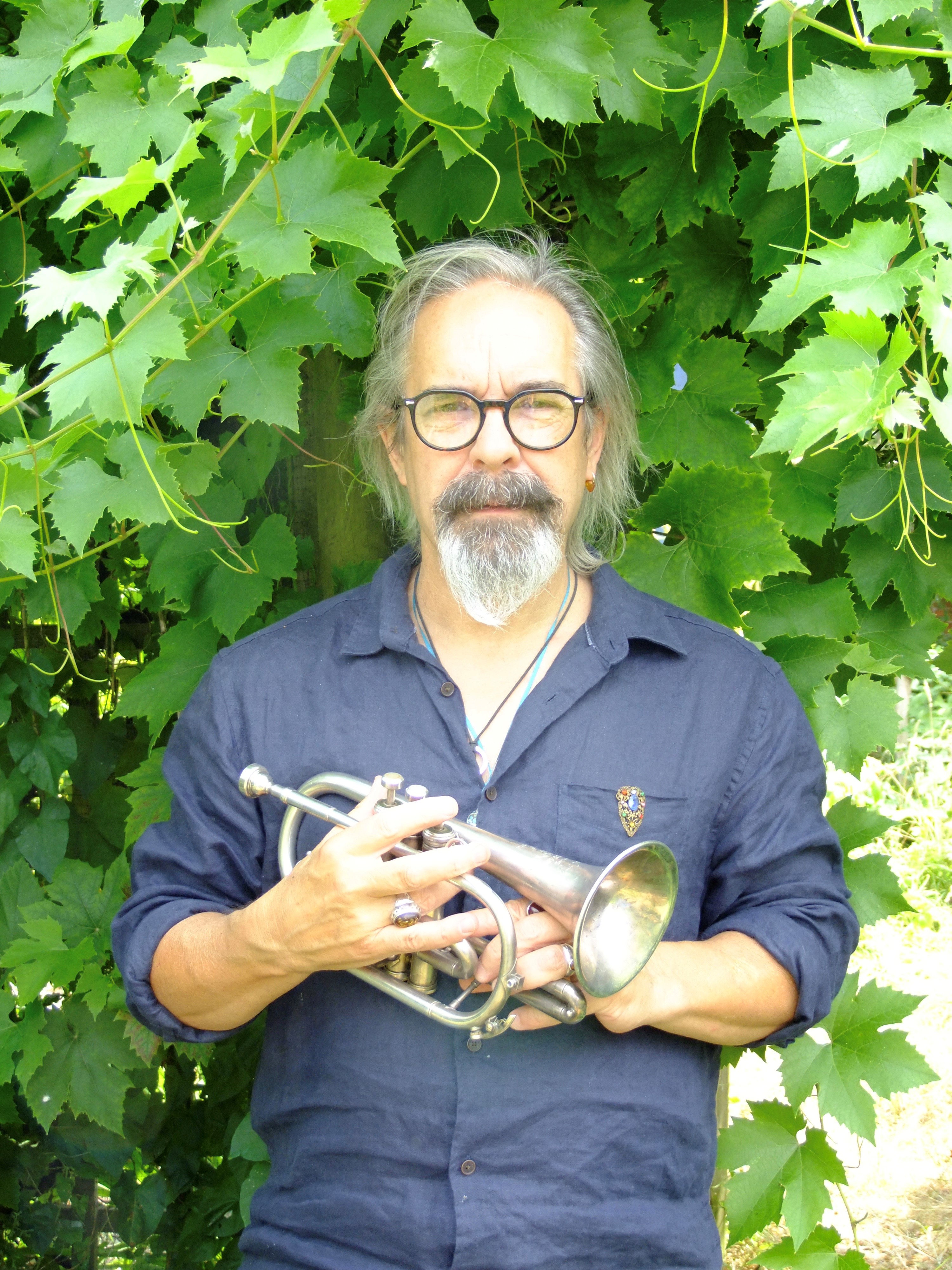
A chat with Roger Eno
We chatted to composer and performer Roger Eno ahead of his concert at The Assembly Rooms on Wednesday 22 May.
How would you say your music has developed over the years?
I’ve noticed over the last few years that the music I write and perform solo is becoming almost homeopathic in that I’m taking out more and more notes and allowing even more stillness .I still like the idea of it retaining melodic ingredients and have always, and continue to be, seduced by harmony.
I now like the idea of very occasional ‘flavours’ or ‘colours’ entering a piece and then not being heard again. In live performance I sometimes use an eerie harmonica or the superb vocal skills of my eldest daughter Cecily – extremely simple lines which act as tints.
I’ve also admitted that I am rooted in the past and will take archaic idioms as starting points for new pieces – Edwardian waltzes which I turn into ghosts, plain song and modal scales.
What project are you currently working on?
I’m currently working on new music for both solo concerts and an ‘aleatoric’ installation I’ve got coming up in Melbourne at the end of June. I use a very simple system to create an ever-changing piece and this and future concerts will be accompanied by a film made by my visual collaborator the artist Dom Theobald (search for him on Google) which consists of treated photos he and I took earlier this year. He processed them to make them appear that they had been hand tinted by turning Peter Jackson on his head as the new images now appear old. This beautifully relates to my playing with historical periods, the known and imagined. The film you’ll see at the festival is a particular favourite, having hints of a strange narrative.
You’ve written a lot of acclaimed music for plays, films and TV. How do you approach these projects? Are they fundamentally different from your own projects?
Writing for film and theatre is something I find second nature. As a teenager I’d improvise at the piano with an open book of paintings on the music stand-Brueghel was a favourite – and accompany the action. I perform to silent films using little motifs that act as improvisatory springboards and somewhere to return to in order to give the piece an anchor. With film and TV, theatre and silent movies the composer/performer takes a secondary role, that of ‘mood painter’ and this-keeping out of the spotlight-is a place I’m very comfortable in. In short, given decent people to work with it’s an area I like very much.
Is there a difference in the way you approach a live concert from, say, making an album?
When playing live I enjoy talking to the audience, telling jokes and occasionally throwing in a 1930s song among my own work. Solo performance allows movement as it is transitory. When making an album I think differently as it is something which hopefully people will return to and who wants to hear the same joke repeated? I take great care in the running order of pieces as generally speaking (as Generals do) I aim for a continued overall mood. If possible, I’ll try to follow pieces with other in related keys to help ‘blur’ the edges of ends and beginnings. I’ve always liked the idea of people putting my music on and going about their day-reading of talking with friends, eating etc
How do you feel about labels in music, for example, ‘ambient’? Is it a helpful word?
Insults aside, I’m not really concerned with labels.
There’s a beautiful stillness to much of your music, reminiscent of some of Arvo Pärt’s work. Is he someone you admire?
Well spotted. Arvo Part is a master. I admire his purity of, let’s face it, spiritual stillness and lack of compromise. He uses the Eastern Orthodox Christian tradition as one who belongs to it. He writes with his soul.
Who have been the prime influences on your musical voice? Are you influenced by artists other than musicians?
When I heard the music of Erik Satie I was an instant fan. I was at music college at the time (in the mid/late 70s) and there was a resurgence of interest in his work. His approach was so unlike the Bachs, Schoenbergs, Wagners and the like in that he wrote utterly beautiful music using the barest minimum of notes. He was a huge influence on me. He also seemed like a fine man – his grave says: ‘Here lies a great musician, a man of heart, an exceptional citizen’. Now that is something to work towards.
Do you have any favourites among the many musicians you have collaborated with?
I’ll keep my favourite people to myself.
Roger Eno is at The Assembly Rooms, Bath on Wednesday 22 May at 7.30pm. Tickets: £19 (excluding fees). Book here